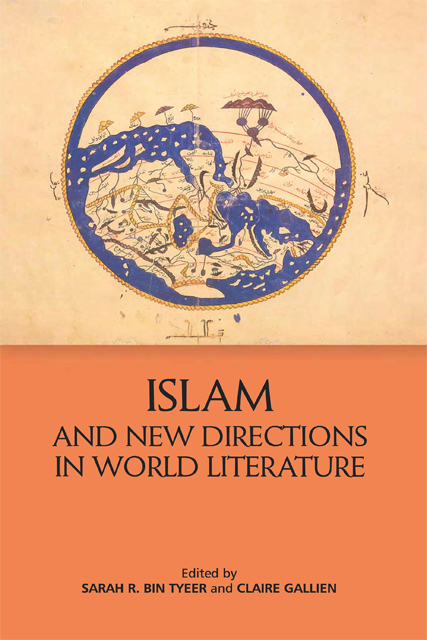Foreword
Published online by Cambridge University Press: 14 July 2023
Summary
It is a privilege to contribute a brief foreword to this timely collection, brilliantly conceived, edited and introduced by Sarah R. Bin Tyeer and Claire Gallien, and brought to fruition despite the acute challenges presented by 2020 and 2021. Bridging polarities – aesthetic and political, historical and theoretic – this volume interrogates Weltliteratur via Islamicate imaginaries, confronting abstract complexities while revealing rich compositional specifics. Central to the collection is a vision of Islamicate letters as ‘always and already’ global in scope; as Bin Tyeer and Gallien explore in their elegant introduction, the primary sources illumined anew in this edition represent World Literatures before and beyond standard scholarly frames that have been belatedly applied from the ‘Global North’.
This final phrase, implying a specifically hemispheric consciousness and critique, is aptly foregrounded in Islam and New Directions in World Literature. Invoking influential voices such as Aamir Mufti, the volume opens by articulating its aim to ‘move beyond monocentric tendencies of World Literature’ in recognition especially of the ‘field’ as it is ‘now defined in the Global North’. It is this regional classification, charting broad zones of contact and inquiry, that I find especially intriguing. A Canadian, with rural Ontario roots, I have dedicated my own career to considering together Islamicate and North American letters, spanning lost Arabic manuscripts authored by enslaved West African Muslims, to the deep debts owed by classic New England authors to Persian Sufi poetry. The ‘Global North’ lineages of World Literature, as rightly recognised by Bin Tyeer and Gallien, implicate J. W. Goethe especially, whose receptions of Ḥāfiẓ were foundational to the field’s formalising – receptions which later catalysed much Comparative Literature scholarship, including, admittedly, my own. As a literary critic concerned with Qurʾānic legacies, but who is biographically ‘northern’, I find compelling the hemispheric shifts theorised by Bin Tyeer and Gallien, and performed practically within the chapters of Islam and New Directions in World Literature. However, the present collection’s ‘monocentric’ critique invites us not only to broaden out beyond the ‘Global North’, I think, but to reimagine what this region might yet signify, attending to traditions of the North too often neglected within both Comparative Literature and Islamic Studies.
- Type
- Chapter
- Information
- Islam and New Directions in World Literature , pp. xiv - xxPublisher: Edinburgh University PressPrint publication year: 2022



